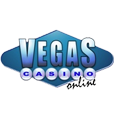Michigan Casinos, Gambling, and Law Regulations: An Overview
The history and culture of Michigan are deeply intertwined with gambling, particularly horse racing, which was first legalized in the 1930s during the Great Depression. There have been dramatic transformations in Michigan’s gambling landscape since then, creating a sort of rollercoaster experience, particularly in terms of gambling laws.
The first race tracks were established in Michigan at the beginning of the 20th century, where punters have been placing wagers in the pari-mutuel style ever since. In the mid-70s, the first lottery and charitable gaming acts were enacted and legalized lottery, bingo draws raffles and other types of gaming.
Further development led to full legalization of casino gaming in the 1990s, with both commercial-type casinos and Tribal casinos springing up like mushrooms across Michigan, offering all types of slots and table games.
Michigan is also one of the first states to address the issue of online gambling that has seen its fair share of turmoil and went from being outright banned to entirely legal.
In this article, we are going to take you on tour through fundamental gambling laws in Michigan, and tell you where you can play your favorite casino games while visiting the Great Lakes State.
Top 3 Michigan Online Casinos
Gambling Laws in Michigan — The Law Overview
Gambling laws in Michigan have been on the fast track ever since the 1972 and McCauley-Traxler-Law-Bowman-McNeely Lottery Act that saw the establishment of the state-run Michigan Lottery and the first lottery draws. According to this law, 55% of total lottery revenue will be used to fund education, healthcare, social programs, and other vital sectors in society.
That same year, the representatives voted to legalize bingo games, raffles, and other forms of charity gambling conducted by charitable, educational, and religious organizations as a way of funding their programs. The act is known as the “Traxler-McCauley-Law-Bowman Bingo Act.”
Pari-mutuel wagering on horse racing was first legalized in the 1930s, but all amendments in the following years have led to “Horse Racing Law of 1995” that regulated not only wagering, but horse race tracks applications, racing commission, and many other details as well.
However, momentous changes that defined gambling in Michigan occurred in 1996, when voters approved the Michigan Gaming Control and Revenue Act. This act authorized casino gaming, Tribal Casinos under the Indian Gaming Regulatory Act, and synced the legislation with previous gambling-related laws.
Furthermore, the state of Michigan created the Michigan Gaming Control Board under the Department of Treasury to oversee, license, and regulate gambling within the state and make sure all legal measures and provisions are honored.
The legislation reaffirms the rule that no player under 21 can enter casinos, while to enjoy lottery, bingo, and charitable gaming, you have to be at least 18. Also, gaming facilities are required to pay a combined state and city gaming taxes amount to 19 percent of the casinos’ net win. Net win refers to the casino’s gross receipts after the winnings get deducted.
All technical issues relating to electronic gaming devices and associated gaming equipment are in the domain of the Michigan Gaming Control Board Gaming Lab which makes sure all gaming machines are fair and outcomes genuinely random.
Michigan Criminal Code
While the Michigan Gaming Control and Revenue Act deals with legal forms of gambling, chapter 750 of the Michigan Criminal Code is focused on actions that befall people who engage in illegal gambling. The Criminal Code sees illegal gambling as an act of “Accepting money or valuable thing contingent on an uncertain event”. The punishment is seen as a misdemeanor and is punishable by up to 1 year in prison and up to $1,000 fine.
Also, if you are caught holding an illegal card game at home, you will face a misdemeanor charges according the Section 302 of the chapter 750 which says: “Keeping or occupying common gambling house or building or place where gaming permitted; apparatus used for gaming or gambling; manufacture or possession of gaming or gambling apparatus for sale.”
Pool selling, registering bets and gambling in stocks, bonds, grain or products is strictly prohibited and, if found guilty, you will face a punishment of 1 year in prison and up to $1,000 in fines.
The punishments are even more punitive for trying to run a gambling facility without a legal license: “A person is guilty of a felony punishable by imprisonment for not more than 10 years or a fine of not more than $100,000.00, or both, and shall be barred from receiving or maintaining a [gaming] license for doing any of the following:
(a) Conducting a gambling operation where wagering is used or to be used without a license issued by the board.“
What Forms of Gambling Are Allowed in Michigan?
The oldest form of gambling allowed in Michigan is pari-mutuel betting on horse racing, first regulated by the Racing Act of 1933, then amended with the current Horse Racing Law of 1995. Under this law, pari-mutuel betting is allowed on both live and simulcast racing. Back in the day, there were several race tracks in operation around Michigan, and now, only the Northville Downs racetrack offers live and simulcast racing.
The lottery is another form of legal gambling in Michigan. The sole proprietor of lottery games is the Michigan State Lottery. The lottery games you can play are instant cash, scratch cards, keno, pull tabs, lottery draws, and second chance games. The Michigan Lottery also participates in interstate lottery draws, like Mega Millions lottery where jackpots reach dozens of millions of dollars.
Licensed religious, charity, veteran, fraternal, and local civic organizations are entitled to host bingo draws and the so-called Millionaire Party Events where even casino table games are allowed. All organizations hoping to host such an event must pay a $50 fee per event day.
Casino gambling is licensed and regulated under the Michigan Law and takes place in 23 tribal casinos and 3 commercial casinos all across Michigan. There, you will enjoy thousands of different slots, roulette, blackjack, poker, craps, and many other casino games.
Most recent changes and amendments to the gambling law in Michigan deal with sports betting and online gambling, both of which were finally legalized in December 2019.
Is Online Gambling Legal in Michigan?
Things are looking good for online gambling in Michigan, but it wasn’t always like that. In 1999, Michigan legislators adopted a controversial Senate Bill 562 which made online gambling illegal. The law boded well for tribal casinos and their representatives, but only for a short while. The anti-online gambling sentiment died out, and the law was abolished in 2000, with Senate Bill 894 that lifted the ban altogether and paved the way for further online gambling developments.
As of December 2019, online gambling has been legalized, according to House Bill 4311. the Michigan Gambling Board announced that legal online casino gaming and sports betting would, hopefully, be available to Michigan residents in 2021. The proposed taxes for online sports betting will be 8.4% of the betting site’s net win, while online casinos are expected to pay between 20 and 23%.
Until fully functional legal and regulated online casinos start offering services in Michigan, players can enjoy online lottery, off-track betting, and access to offshore online casinos.
Although offshore casinos are not legal per se, no player from Michigan has ever been persecuted for playing there. With current lenient online gambling laws, the situation won’t likely change in the future.
Where to Gamble in Michigan?
There are 23 tribal and 3 commercial casinos in Michigan where you can enjoy classic table casino games, slots, and many other games. After doing some digging, we have found a couple of liable options for a premier gambling experience.
MGM Grand Detroit
The MGM Grand in Detroit is a casino member of the renowned MGM Grand group, which only means casino resort excellence is upon you. At MGM Grand Detroit casino resort, you will find more than 3,500 top slots from the best software providers, as well as a hotel with 400 deluxe rooms and suites, Las Vegas-style. If you are up for a game of Ultimate Texas Hold ’Em, High Tie Blackjack, or European Roulette, over 150 table games await your choice. The resort features numerous amenities and entertainment centers, tending to your every need. The MGM Detroit is located on 1777 3rd Avenue, Detroit, MI 48226, and is open 24/7.
MotorCity Casino and Hotel
MotorCity Casino Hotel is a crown jewel in Detroit’s skyline, with an exclusive gaming floor featuring 2,700 slots and 59 table casino games, plus 12 smoke-free poker tables. Also found in the hotel are spa facilities, fine dining restaurants, live performance venues, and over 400 luxurious rooms and suites. The MotorCity Casino will regularly shower you with gifts and promotions, helping you get the most of your wagers. The casino is situated on 2901 Grand River Avenue, Detroit, MI 48201, and open for business non-stop.
Greektown Casino and Hotel
Greektown Casino and Hotel is a 100,000 square foot gambling facility situated in the historic Greektown quarter. The casino floor features a score of slots, poker, blackjack, roulette, craps, and other casino games, and an exclusive VIP gaming area opened in 2009. The newly-renovated hotel includes 400 rooms and suites on the premises, as well as several restaurants, bars, spa centers, and many other amenities for your enjoyment. The exact location of this round-the-clock fun and gaming establishment is 555 E Lafayette St, Detroit, MI 48226.
FAQ
Are casinos legal in Michigan?
Casinos are legal in Michigan, and there are 3 commercial and 23 tribal casinos to choose from.
Is online gambling legal in Michigan?
Online gambling is legal in Michigan as of December 2019, with the first licensed online casinos expected in 2021.
What games can you gamble on in Michigan?
In Michigan, you can gamble on slots, poker, blackjack, roulette, craps, lottery, horse racing, and bingo games.
What is the legal gambling age for players in Michigan?
The legal age for players in casinos is 21, while to play the lottery and bingo, you must be over 18.
Who regulates legal forms of gambling in Michigan?
The legal forms of gambling are regulated according to the Criminal Code and the Michigan Gaming Control and Revenue Act.








